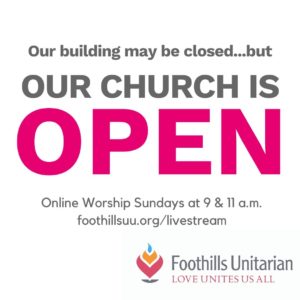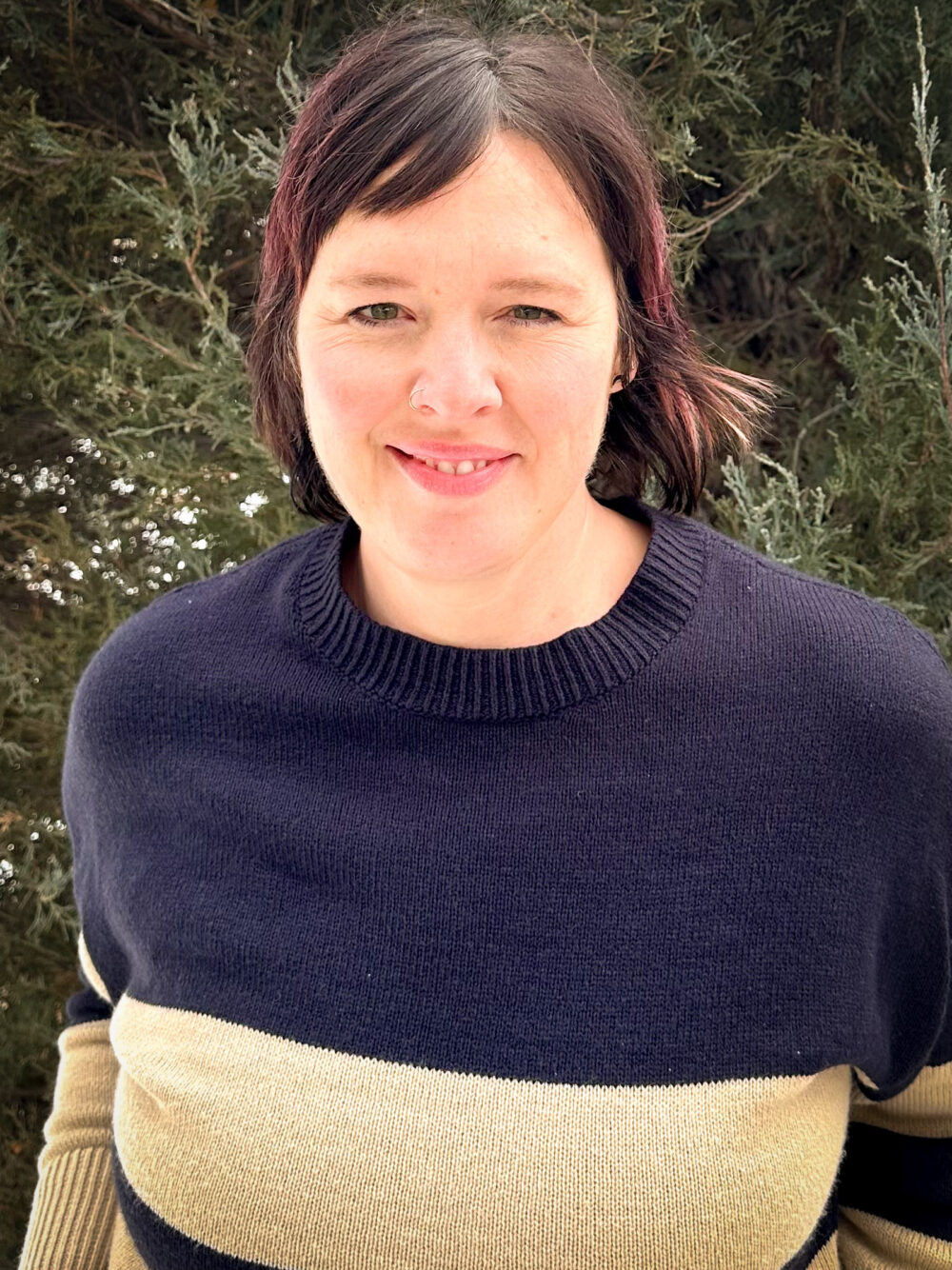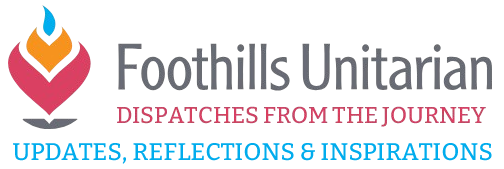[vc_row][vc_column][vc_column_text]It’s been a difficult week of news. We crossed the grim milestone of 100,000 deaths from COVID19, and stories of racialized violence and injustice echo across the country. None of this is a surprise, exactly. But that doesn’t make it any less devastating, or wrong.
How are you doing? Especially you who are people of color. Outrage upon outrage. If you need to talk (or yell or cry or all of it…) please don’t hesitate to reach out.
And, especially those of you sheltering-in-place on your own. I’ve been thinking so much about you. Wondering if we should make one of those shower-curtain-hugs-stations and set up in the church parking lot, or maybe one in each circle? I’ve been thinking about it, but haven’t done it…
…mostly because like a lot of other things these days, the risks aren’t totally clear. And the last thing any of us want to do is to put someone we love at risk. Which brings me to another big milestone we crossed this week: the authorization to “re-open” in Larimer County, including, at least to some degree, churches.
I’ve been watching our numbers really closely. I’ve been very happy to see new cases remain steady, about 6-8 new cases a day for the last couple of weeks. Generally, the trend is good.
And yet, I remain equally steady in my sense that we are making the right choice to stay all virtual for the foreseeable future, as we’ve said, probably through next year at this time.
Here are a few of my reasons….
- Church services remain one of the highest risk for mass transmission. Despite the technical authorization, there are plenty of examples of churches gathering “safely” in the last few weeks, only to see hundreds of people infected. Not to mention, our current space is not conducive to social distancing. for more than just a few households.
- A lot of us fall into the higher risk population. The rates of fatality or long term impacts for many of us are intolerable. It’s not a matter of statistics to me – it’s personal, knowing specific people who we’d be putting at risk. Like we’ve talked about on Sundays – it’s not news to me, it’s family.
- If we did gather, those who are most at risk would likely choose not to attend – so, whose experience do we prioritize – in person, or online? Our virtual church experience on Sunday is generally going well – trying to merge this with an in-person experience, especially when the in-person wouldn’t be allowed to sing (because singing is one of the highest risk activities!)…it’s just not great. And probably riddled with anxiety.
- And by the way….how in the world can we imagine gathering and keeping literally every one of us from hugging or getting closer than 6 feet?? After this much time apart, it seems nearly impossible. And again with the anxiety…..
With all of that in mind, even larger group outdoor gatherings start to seem unlikely, at least for a while longer. I know some folks are starting to think about smaller group gatherings, outdoors, with masks. These are lower risk, but not without risk. Especially for anyone over age 65, or with a pre-existing condition, I can’t encourage it, or sanction it. As of now, our church remains “virtual only” for everything – for all ages.
And still…I understand it. We’re all trying to find our way through this time, and navigate the risks we can handle, and trying to minimize those risks as much as possible – so that we can keep living a life we can call life. There’s so much we have needed to give up, and so much we’re still trying to understand. I know we’re all doing the best we can in the midst of this incredible and sustained uncertainty.
Earlier this week I came across this article about major uncertainty in our historic past – like the stories we’ve been exploring in worship lately, these stories of the past reminded me of the roots of our collective resilience. Our capacity to wade through this incredibly challenging time and to still claim a sense of meaning, and purpose, and joy.
This Sunday we’re finishing up our series by remembering our personal stories of resilience. I hope you’ll join us on Zoom at 9 or on all the livestream places at 11. It’s truly not the same without you.
As with most Sundays, I’ll be singing out boisterously the whole time, hoping you’re joining me, without any of the risks of actually being together.
It’s funny, people keep talking about this idea of “re-opening” churches, but from what I’ve seen in the last few months, while our building is closed, we’re actually more OPEN than ever. And for this, I am so grateful.
 [/vc_column_text][/vc_column][/vc_row]
[/vc_column_text][/vc_column][/vc_row]

Katie believes the best things in life are the result of collaboration and diverse perspectives coming together to produce something greater than any individual could. She is passionate about systems, efficiency and collaboration for better community outcomes. She loves dreaming up the big picture and drafting the roadmap to make it happen. She has a background in operations, fundraising, communications and program development, as well as over a decade of nonprofit management experience in Northern Colorado.
Her greatest joy in life comes from her family. Her husband, Steven, a principal at Wellington Middle School, and daughters Emmaline and Esmae are the lights of her life. Together they love mountains, music and all kinds of food. She is passionate about women supporting other women in all stages of life and especially through the critical moments that make or break us. She believes that one of the most important things in life is to be kind.
Being outdoors makes her soul come alive. It always roots her in gratitude and is one of the reasons she loves living in Fort Collins.
